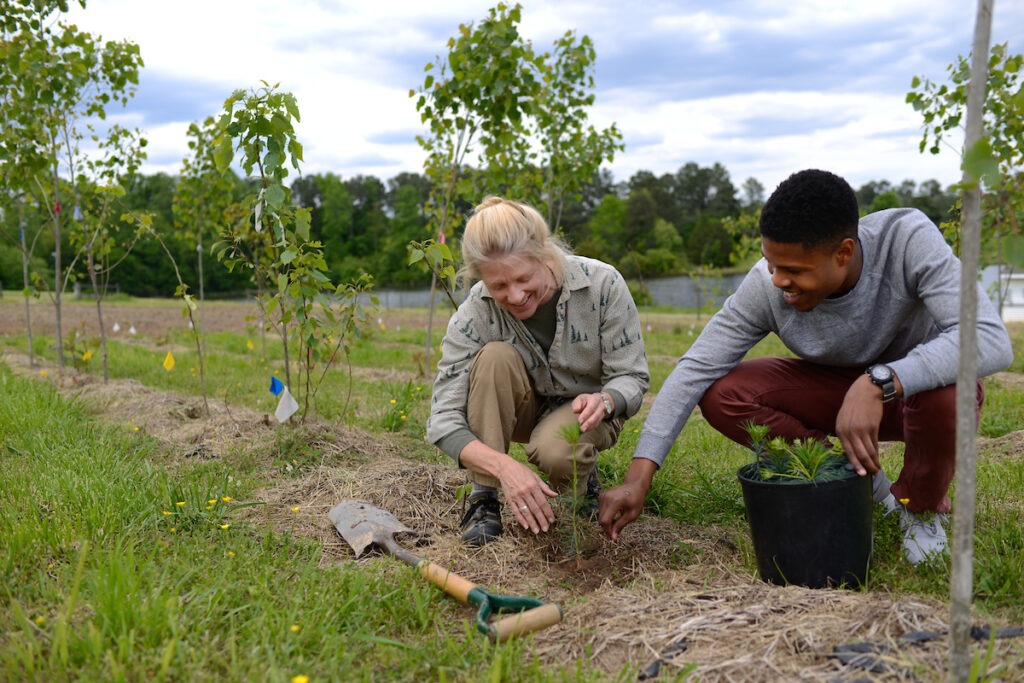Undergraduate Degree Programs Improve Curricula with General Education Competency Data

At NC State, we continuously improve the quality of undergraduate education by assessing and making decisions with General Education Competency data. Known as the Pack Proficiencies, these competencies chosen by faculty across the University as key skills undergraduate students from every major should develop: critical thinking, creative thinking, oral communication, written communication, and quantitative literacy. The Office of Assessment and Accreditation, DASA Assessment, and faculty across the University to collect data on students’ learning in the General Education Competency areas, in order to support continuous improvement in undergraduate education.
As NC State prepares to assess first-year and senior students in written communication in 2020-2021, we would like to highlight ways that faculty have partnered with campus assessment efforts to collect data on students’ written and oral communication competencies. Faculty use the data to make decisions about student learning at the program-level, and can include the evidence of student learning and resulting decision(s) as part of their annual academic program assessment report.
The Psychology program and the Fisheries, Wildlife, and Conservation Biology program are two examples of undergraduate programs who have partnered with campus assessment efforts to collect and use General Education Competency Assessment data. Both programs were interested in students’ oral and written communication skills and utilized multiple measures for their assessments. Below we have highlighted the components of the respective programs’ assessment plans that included collaborating with the Office of Assessment and Accreditation and DASA Assessment to collect student learning data.
Fisheries, Wildlife, and Conservation Biology

During 2018-2019, Fisheries, Wildlife, and Conservation Biology measured the following outcome: students will “communicate proficiently in the kinds of writing and speaking required of fisheries, wildlife, and conservation biologists.”
In FW 415 (Professional Development in Fisheries, Wildlife, and Conservation Biology) students delivered individual oral presentations regarding a wildlife topic of their choice. The presentations were assessed on NC State’s General Education Competency rubric for Oral Communication. This rubric has 7 dimensions that assess presentation content and 4 dimensions that assess delivery. The scale ranges from 1-4, with a score of 1 as “minimal” and 4 as “advanced.” In their assessment report, faculty in Fisheries, Wildlife, and Conservation Biology provided mean scores for each of the rubric dimensions. NC State assessment staff also scored the student presentations alongside the FW 415 instructor.
“The rubric made things a lot easier. Having two external scorers was a huge help… It was super easy for me. If you have a class with an oral communication component, you can get good data using the rubric; you can drill down and see what areas you need to focus on.”
– Dr. Lara Pacifici, Teaching Associate Professor in the Department of Forestry and Environmental Resources
Based on the evidence collected, which was analyzed for strengths and areas for improvement, faculty in Fisheries, Wildlife, and Conservation Biology determined that the program is doing well in supporting students’ ability to, “locate, synthesize and employ compelling supporting materials” in their presentations. In terms of areas for improvement, faculty decided to provide additional guidance to students on the role and importance of having strong concluding statements in oral presentations.
Dr. Lara Pacifici, Teaching Associate Professor in the Department of Forestry and Environmental Resources, and Director of Undergraduate Programs noted that, “The [General Education Competency- Oral Communication] rubric made things a lot easier. Having two external scorers was a huge help. It was nice to see how our scores compared. For most measures, only one person is scoring something so the additional scorers added to the robustness of the assessment. It was super easy for me. If you have a class with an oral communication component, you can get good data using the rubric; you can drill down and see what areas you need to focus on.”
Psychology

In 2018-2019, Psychology faculty measured the following outcome: students will “demonstrate effective communication skills by applying professional style in explaining and describing scientific results to an audience.”
In PSY 430 (Biological Psychology) 25 seniors completed the scenario-based common writing assessment. The scenario-based instrument was developed by NC State faculty. The instrument asks students to take a position on a common prompt; students use sources provided to support their arguments. The assessment was administered in class and then later scored by faculty in the Department of English. Rubric scores were returned to the Department of Psychology for use in program assessment. The writing samples were scored on the NC State Written Communication Competency rubric.
Twenty-five seniors in the major completed the scenario-based writing assessment administered in PSY 430. The assessment was scored by faculty in the Department of English using a 4-dimension rubric on a 4-point scale (where 1 is the lowest score and 4 is the highest). Rubric dimensions included:
- Context of and purpose for writing
- Genre and task conventions
- Sources and evidence
- Student’s position/thesis
Senior mean scores were highest in “context” and lowest in “sources.” The Department of Psychology also compared senior mean scores to the mean scores of psychology sophomores/juniors. These data suggested that seniors score higher than sophomores and juniors on the writing task.
Faculty supplemented the rubric data by observing 109 psychology seniors during oral presentations and scoring their communication competency with a 3-dimension rubric developed by the department. Psychology seniors also received a 3-question survey concerning the degree to which they believe that the “classes and experiences as a major in Psychology” improved their communication skills. One hundred and forty-two seniors completed this survey.
Faculty used all of these measures together to determine that students met defined benchmarks for written communication. However, based on the survey data collected, Psychology faculty identified room for improvement in presentation skills. In particular, the survey data collected suggested that students did not feel that they had adequate training in presenting. The faculty decided to create and systematically facilitate the implementation of course-specific learning outcomes consistent with the five assessment objectives in the major. As an example, faculty in PSY 470 (Abnormal Psychology) decided to introduce an oral presentation component (at least one presentation which is at least 15 minutes long). This presentation component will focus on students’ ability to “demonstrate effective presentation skills.”
Oral communication, written communication, quantitative literacy, critical thinking, and creative thinking are so integral to student success that they are woven into almost all undergraduate courses. In order to further strengthen the quality of undergraduate education at NC State, faculty assessing these skills in their programs are encouraged to partner with Assessment staff to collect data for General Education Competency assessment.
Learn More
Read more about these showcases and the General Education Competencies here. If you are interested in partnering with the Office of Assessment and Accreditation and DASA Assessment or have any other questions about General Education Competency Assessment, please contact Samantha Rich (snrich@ncsu.edu).
- Categories:


